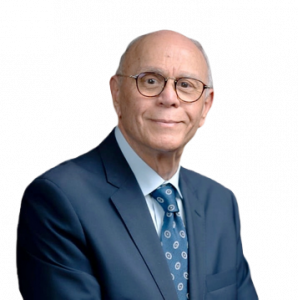Dementia (Alzheimer’s disease)

Dementia is a term used to describe a group of symptoms affecting memory, thinking and social abilities severely enough to interfere with doing everyday activities. It isn’t a specific disease, but several diseases can cause dementia.
Alzheimer’s disease
This is the most common cause of a progressive memory loss in older adults, but there are a number of other causes of dementia. Depending on the cause, some symptoms might be reversible.
Alzheimer’s disease mainly affects adults who are older — up to 10% of those over age 65 and about 50% of people older than 85 have the disease. Family history is an important risk factor. Approximately 60% to 80% of people with dementia have this type.
Other types of dementia:
Frontotemporal Dementia, Lewy Body Dementia, and Vascular Dementia
Symptoms of Dementia
Symptoms can vary and may include:
- Forgetting recent events or information in early stage. Global memory impairment in advanced stage
- Repeating comments or questions over a very short period
- Misplacing commonly used items or placing them in unusual spots
- Wandering and getting lost in a familiar neighborhood
- Not knowing the season, year or month.
- Difficulty speaking, understanding and expressing thoughts, or reading and writing
- Experiencing a change in mood, behavior or interests.
- Trouble handling money responsibly and paying bills
- Having trouble anticipating and feeling pleasure in everyday life
- Experiencing poor judgment and confusion
- Avoiding social interaction or interacting in socially awkward ways
- Having very low energy and spending a lot of time in passive activities
- Experiencing hallucinations or paranoid delusions
- Experiencing periods of agitation and restlessness
- Disturbed sleep pattern
- Personality changes
- Experiencing periods of low mood and anxiety.
Treatment of Dementia
There is currently no cure for dementia. But there are medicines and other treatments that can help with dementia symptoms.
Most of the medicines available are used to treat Alzheimer’s disease as this is the most common form of dementia. Medicines may slow down dementia. They improve cognition (including memory, orientation and language) and function (including performance of daily activities).
The main medicines are:
Acetylcholinesterase inhibitors:
These medicines prevent an enzyme from breaking down a substance called acetylcholine in the brain, which helps nerve cells communicate with each other.
Donepezil (Aricept), rivastigmine (Exelon) and galantamine (Reminyl) are used to treat the symptoms of mild to moderate Alzheimer’s disease. Donepezil is also used to treat more severe Alzheimer’s disease.
Memantine
Memantine is suitable for those who cannot take or are unable to tolerate acetylcholinesterase inhibitors. It works by blocking the effects of an excessive amount of a chemical in the brain called glutamate.
Anti-amyloid antibody aducanumab (Aduhelm®)
This new medicine was recently introduced. It targets amyloid proteins, which build up into the plaques seen in the brains of people with Alzheimer’s disease.
Medications to treat other symptoms or conditions
Such as psychosis, depression, sleep disturbances or agitation, may also be prescribed.
Although none of these drugs appear to stop the progression of the underlying disease, they may slow it down.
If other medical conditions are the cause or co-exist with dementia, healthcare providers prescribe the appropriate drugs used to treat those specific conditions. These other conditions include sleeping problems, depression, hallucinations and agitation.
This information is not intended to replace advice given to you by your health care provider. Make sure you discuss any questions you have with your health care provider.

